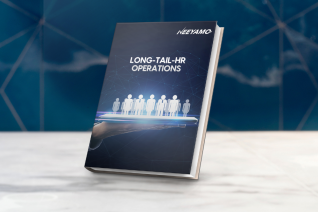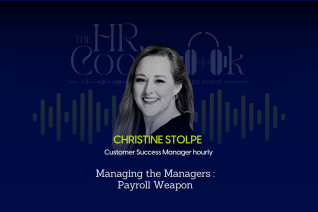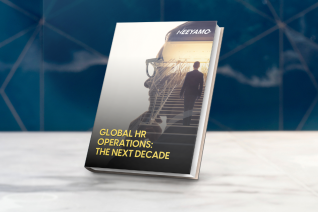Establish your presence globally with Neeyamo as we help you go beyond borders to manage your global payroll services and hire new talent in Chile.
Overview
Chile boasts a treasure trove of mineral riches, including readily available gold, iron, silver, and lithium deposits. Yet, the nation's copper reserves shine as its most prized asset. Chile leads the world in copper production, with an impressive 5.2 million metric tons in 2022. Beyond its mineral wealth, Chile takes pride in nurturing a thriving pool of highly skilled professionals within its workforce.
Is your company planning to hire employees in a country with abundant valuable resources? Do you lack a physical entity in the country – a key requisite to hiring local talent? Neeyamo assists organizations worldwide with onboarding and managing employees in Chile, processing payroll, managing local compliance requirements, benefits, and more.
Tools And Instances
Facts And Stats
Capital
Santiago
Currency
Chilean Pesce (CLP)
Official Language
Spanish
Fiscal Year
1 January - 31 December
Date Format
DD/MM/YYYY
Country Calling Code
+56
Other Languages
German, English
Time Zone
Chile Standard Time (UTC -4:00)
Global Payroll
Overview
What is Global Payroll?
Global payroll is the management of the entire payroll function of an organization across all countries of operation. Organizations use a single solution capable of doing this from one central location.
Handling payroll for a widespread workforce can pose a significant challenge for any organization, and the added complication of compliance can make things worse. If companies spend more time processing payroll, it directly impacts day-to-day operations and their overall productivity.
Over the years, Neeyamo - Global Payroll Providers, has observed these complexities and strived to provide a global payroll solution through a single technology platform - Neeyamo Payroll.
What is Payroll Processing?
Payroll processing involves the administration of employee compensation, encompassing salaries, deductions, bonuses, and related components. For global operations, the management of payroll processing often relies on the expertise of an external payroll service provider.
Payroll Taxes
Payroll tax is the percentage amount retained from an employee's salary and paid to the government to invest in the general population's welfare. These are statutory in nature and are levied from both the employer and employee. Additional statutory contributions are made by employers towards aiding both short-term and long-term benefits for their employees.
Employee Taxes
The employee taxes in Chile are computed as follows:
Employee Income Tax
- Up to 13.5 Monthly Tax Units: 0.00%
- 13.5 - 30 Monthly Tax Units: 4.00%
- 30 - 50 Monthly Tax Units: 8.00%
- 50 - 70 Monthly Tax Units: 13.50%
- 70 - 90 Monthly Tax Units: 23.00%
- 90 - 120 Monthly Tax Units: 30.40%
- 120 - 310 Monthly Tax Units: 35.00%
- 310 + Monthly Tax Units: 40.00%
*1 Monthly Tax Unit = approximately 51,500 CLP
They must also make the following payroll contributions:
- 10.0% Pension
- 0.60% Unemployment Insurance
- 7.00% Health Plan
- 17.60% Total Employee Cost
Employer Taxes
The employer taxes in Chile are computed as follows:
Unemployment - 2.40%
Disability and Survival Insurance (SIS) - 1.99%
Total Employment Cost - 4.39%
Payroll Cycle
Overview
Undoubtedly, payroll is a critical process for any organization. The pay cycle in Chile refers to the period for which an organization pays its employees, and this can vary depending on the pay frequency that the organization chooses to adopt. The payroll system in Chile is tricky to maneuver, but with Neeyamo's global payroll software, it could be a comfortable click of a button for you.
Frequency
Employees in Chile are paid on a monthly basis.
13th Month Cycle
There are no provisions in the law regarding 13th salaries.
Global Work
Overview
Employer of Record: Meaning
An Employer of Record (EOR) service provider helps you eliminate the hassle of handling complexities while onboarding a new employee in an international location. They help bridge the gap that otherwise mandates organizations to have a local registered entity and a local bank account, prior to making a job offer to an international hire.
An EOR service provider acts as a legal employer, facilitates salary payments, and manages other statutory requirements such as health insurance, payroll taxes, and employee benefits ensuring compliance with local tax laws and regulations.
This allows organizations to focus on collaborating with the employee in Chile for operational tasks, with the knowledge that they have a cost-effective solution to support their global payroll & HR requirements as they continue their global expansion.
HR Mandates and Practices
Minimum Wage
Chile has approved legislation that takes effect from July 1, 2024, aimed at increasing the minimum wage and providing support for Small and Medium Enterprises (SMEs).
Effective July 1, 2024 the minimum wage is set at 500,000 Chilean pesos.
Overtime
Overtime is paid at a rate of 150% of the regular pay.
Data Retention Policy
In Chile, tax records must generally be kept for a minimum of three years. Employers must also keep employee contracts on public record. Employers with at least five employees must keep a log of remuneration paid.
Hiring and Onboarding Requirements
Hiring
Companies with 100 or more employees must reserve at least 1 percent of occupation for differently abled people or people who are beneficiaries of a disability pension from any social security system.
Also, a workforce comprising more than 25 employees must have a minimum of 85 percent of these employees as Chilean nationals.
Onboarding
In Chile, companies have to register themselves with the Registro Publico de Comercio and Servicio de Impuestos Internos. They will also need to register with the tax authorities to receive a tax ID.
The Municipal working license requires the following:
- Insurance policy
- Bank account
- work permit (for ex-pats)
- work permit (for ex-pats)
Probation
There are no strict rules in Chilean labor law as to the duration of an employee’s probation. In most cases, for employees on a fixed term (usually no larger than 12 months), the contract is taken to be on probation.
Leave
Public Holiday
There are 16 public holidays in Chile.
- January 1: New Year
- April 7: Good Friday
- April 8: Holy Saturday
- May 1: Labor Day
- May 21: Battle of Iquique
- July 16: The Feast of Our Lady of Mount Carmel
- August 15: Assumption of Mary
- September 18: Independence Day
- September 19: Day of the Glories of the Army
- October 12: Day of the Races
- October 31: National Day of the Evangelical and Protestant Churches
- November 1: All Saint's Day
- December 8: Feast of the Immaculate Conception
- December 25: Christmas Day
Sick Leave
Employees who have participated in the government health insurance program for at least six months and made contributions for at least three months are entitled to government-paid sick leave after the fourth day of missed work; if the sick leave lasts for more than 10 days, pay is retroactive to the first day of missed work. The benefit for private-sector employees is the average monthly earnings in the last six months.
Maternity Leave
Female employees are entitled to maternity leave of six weeks before and 12 weeks after delivery, paid for by the government or private health care insurance fund. If the child weighs less than 3 pounds, 5 ounces (1,500 grams) at birth, the leave is extended to 18 weeks. Additional leave is provided for multiple births at the rate of seven days per additional child. Leave can be extended up to one year for serious health conditions and can be split between the mother and the father.
Paternity Leave
Men are entitled to five days of paid leave for the birth or adoption of a child. If the mother dies in childbirth or during her maternity leave, the father is entitled to her unused leave. Maternity leave can be extended up to one year for serious health conditions and can be split between the mother and the father. The same leave policies apply to adoptive parents.
Other Leave
Annual Leave: Paid annual leave of 15 days is granted to most workers who have completed at least one year of service, although employees who work in Chile's 11th or 12th regions and in the province of Palena in the 10th region are entitled to 20 days of vacation. With these geographic exceptions, employees who have completed nine months of service but not yet a full year qualify for 11.3 days of paid leave. Employees who have worked ten or more years for one or more employers are entitled to an extra day of annual leave for every three years of employment. Annual leave must include at least ten consecutive days.
Unused vacation can be carried over for up to two years, and compensation may be substituted for some annual leave by mutual consent. An employer that closes its facilities for a minimum of 15 days may require employees to take their vacations during the annual closing.
Bereavement Leave:
Workers are entitled to seven calendar days of paid bereavement leave from the date of death of a child or spouse. This is in addition to annual leave and may be taken regardless of time worked. In the case of the death of a parent, the employee is entitled to three business days' leave from the date of death. If an unborn child dies, any worker (male or female) is entitled to three business days' leave from the date when death is confirmed with the appropriate fetal death certificate. There is a one-month tenure protection for workers who suffer the death of a child or spouse beginning from the date of death.
Parental Leave:
Parents of children up to two years of age who cannot attend daycare centers because of social-distancing rules may suspend their employment contracts, even if they have taken at least one period of preventive medical parental leave. Employees who suspend their contracts are to receive the equivalent of their parental leave benefits for three months if they earn up to CLP$1 million per month, or either 70% of their parental leave benefits or CLP$1 million, whichever is greater, for three months if they earn more than CLP$1 million per month.
Vaccine Leave:
Employees are entitled to a half day of paid leave to receive vaccines, but the employer must be notified at least two days in advance.
Marriage Leave:
Employees are entitled to five days paid leave immediately preceding or following the wedding day.
Medical exams:
Female employees over 40 years and male employees over 50 years are entitled to a half working day once a year of paid leave to have a mammography or prostate examination.
Family leave:
Employees may take family leave to care for seriously ill or disabled children younger than 18 years. There is a special subsidized leave for mothers to care for an unwell child less than one-year-old, which can be transferred to the child's father at the mother's option.
Military service or training:
Employees' jobs are guaranteed without loss of seniority if they are called to military service or training. Employers are required to pay regular wages to reserve personnel called to service for less than 30 days.
Termination
Overview
In order to terminate an employee, the cause must first be decided. By law, the following reasons are valid reasons for termination:
- Mutual agreement, resignation, or expiration of a contract
- Breach of contract (employer must be able to provide proof)
- Company needs or reorganization (the most common reason for the dismissal of an employee)
Notice Period
The notice period in Chile is one month by law. Also, it is common for the notice period to be waived and paid in lieu.
Severance Pay
In Chile, if an employee has completed at least 1 year of employment, then they are entitled to receive severance pay.
For every year of service up to 11 years, the employee is entitled to 1 month’s salary.
In addition, after one year of employment, the employee accumulates an additional month of severance pay if they have worked for at least half of the following year. This compensation is only paid if the employee is fired.
In case of the resignation work, it does not correspond to him, and only the accumulated holidays in this period are paid.
Visa
Overview
Anyone who comes to Chile with the intention to work, must receive a work visa.
There are two kinds of work visas available to foreigners:
Visa Subject to a Contract:
For candidates who have secured an employment contract prior to arriving in Chile. It is valid for two years and can be renewed for an additional two years. After that, a candidate needs to apply for permanent resident status, which would allow the candidate to continue working in Chile.
The process requires about 20-30 days to complete. The application should be filed 30-60 days before the expected arrival.
To get the permit, the hiring company must be incorporated in Chile, demonstrate that the hiring will help Chile, and have their VAT and employee insurance paid for the past 3 months.
Working Holiday Visa:
People from Colombia, Mexico, Peru, Germany, Canada, Australia, Czech Republic, and New Zealand who are between the ages of 18 and 35 can apply for a 1-year visa that allows them to work in Chile. The visa cannot be renewed.
Employee Background Checks
Legal and Background Checks
Chilean employers are restricted from requesting pregnancy certificates and HIV checks and cannot hire on economic records.
Even though background checks are not specifically ruled by law, since all hiring practices should comply with non-discrimination regulations and respect privacy and honor, the only background information that the employer is allowed to request is information directly related to or reasonably and, beyond any doubt, essential to determine the candidate’s qualifications and suitability for the specific job that he or she is applying to. Identity information related to sensitive information such as sexual orientation, social origin, and political opinion, should also not be requested.
Furthermore, employers may not condition the hiring of female employees to the absence or existence of pregnancy, and it is forbidden to require any certificate or medical exam to verify this circumstance; employers may not condition the hiring of employees to the circumstance of not suffering or not have suffered from cancer, nor require for said purposes any certificate or examination.
Employers may not require HIV tests as a condition to hire an employee, and employers may not condition the hiring of employees to the absence of financial or commercial obligations or require any statements or certificates to verify this matter, except in case of applicants to positions that imply acting as the employer’s representatives, such as managers or agents, provided they have managing authorities, and applicants to positions who will be in charge of the administration, custody or collection of funds.
Last updated on August 05, 2024
If you have any queries or suggestions, reach out to us at irene.jones@neeyamo.com
¿Tiene consultas? Póngase en contacto con nosotros
Póngase en contacto con uno de nuestros expertos y obtenga una demostración rápida de nuestros servicios







